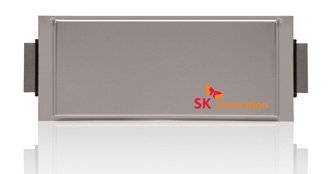New Kia Soul EV to feature advanced battery
26 Feb 2014|4,308 views
The forthcoming Kia Soul EV is to come with a class-leading battery energy density of 200Wh/kg as a result of a three-year joint development programme between Kia Motors Corporation and SK Innovation in Korea. Kia engineers have developed the outstanding power pack featuring 192 lithium-ion polymer battery cells in eight modules, delivering a total battery capacity of 27kWh.

In addition, a special secure separator is used in the Kia Soul EV's battery cells. The separator determines the safety and the charge/discharge speed of the battery. It has improved thermal resistance, which helps to keep the cell secure from exposure to heat or fire by preventing the shrinking of the separator if the temperature of the cell increases beyond normal levels.
Together, the low electrical resistance battery cell, proper battery system thermal control and accurate state-of-charge calculation improve the charging performance, thereby enabling an outstanding 'fast charge' time of 25 minutes (100kW DC) or 33 minutes (50kW DC). Full recharge time, depending on power source, takes up to five hours (6.6kW AC).
The electrolyte additive used in the Soul EV will prevent the degradation of battery performance at both low and high temperatures, expanding the temperature range of the battery usage and reducing the fluctuation of the driving range according to the weather. For maximum 'active safety', the battery module is fitted with an overcharge protection device that cuts the high voltage circuit if ever the battery cell swelling phenomenon should occur due to overcharging.
The forthcoming Kia Soul EV is to come with a class-leading battery energy density of 200Wh/kg as a result of a three-year joint development programme between Kia Motors Corporation and SK Innovation in Korea. Kia engineers have developed the outstanding power pack featuring 192 lithium-ion polymer battery cells in eight modules, delivering a total battery capacity of 27kWh.
Nickel-rich NCM (nickel-cobalt-manganese) cathode material is used in the mass production of the battery cells for the Soul EV. Energy density, which is dependent on cathode capabilities, is a core performance factor deciding EV driving range. By exploiting the class-leading energy density of its battery, the Soul EV offers a driving range of around 200km on a single charge.
In addition, a special secure separator is used in the Kia Soul EV's battery cells. The separator determines the safety and the charge/discharge speed of the battery. It has improved thermal resistance, which helps to keep the cell secure from exposure to heat or fire by preventing the shrinking of the separator if the temperature of the cell increases beyond normal levels.
Together, the low electrical resistance battery cell, proper battery system thermal control and accurate state-of-charge calculation improve the charging performance, thereby enabling an outstanding 'fast charge' time of 25 minutes (100kW DC) or 33 minutes (50kW DC). Full recharge time, depending on power source, takes up to five hours (6.6kW AC).
The electrolyte additive used in the Soul EV will prevent the degradation of battery performance at both low and high temperatures, expanding the temperature range of the battery usage and reducing the fluctuation of the driving range according to the weather. For maximum 'active safety', the battery module is fitted with an overcharge protection device that cuts the high voltage circuit if ever the battery cell swelling phenomenon should occur due to overcharging.
Latest COE Prices
August 2025 | 2nd BIDDING
NEXT TENDER: 03 Sep 2025
CAT A$104,524
CAT B$124,400
CAT C$72,190
CAT E$125,001
View Full Results Thank You For Your Subscription.


















